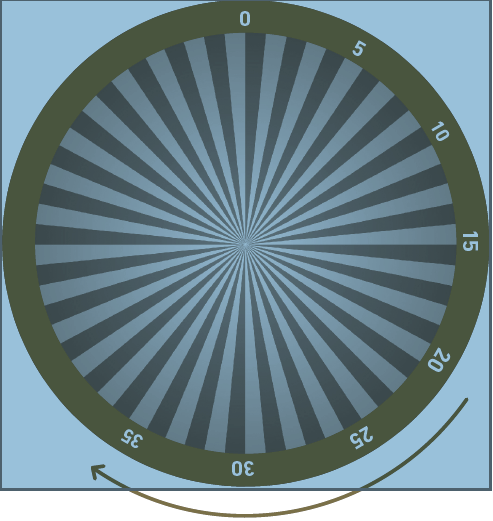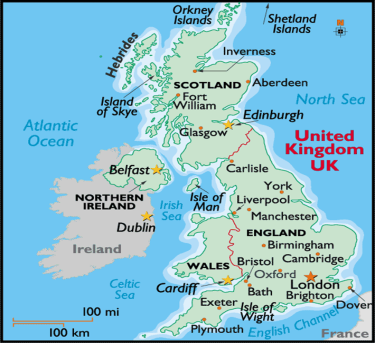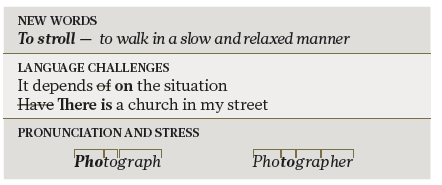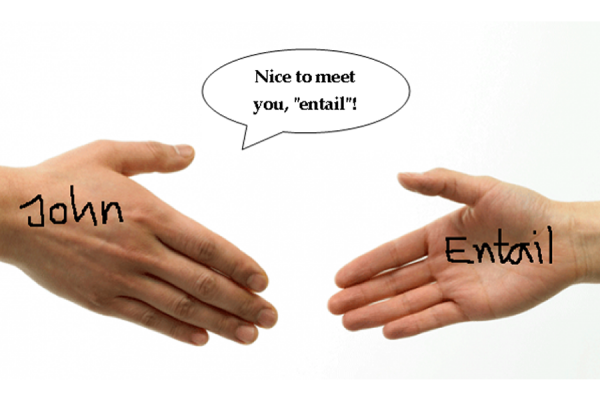
Many English teachers and schools will inevitably be teaching online courses from now on given the Covid-19 outbreak. In this month´s blog, I would like to share some material with you that can be used with individual students and groups online.
ACTIVITY 1- LEVEL A2 ONWARDS
AIM: TO PRACTICE PAST SIMPLE
INSTRUCTIONS:
This activity is best done with individual students. Share your screen and show the lifecycle (below) to your student. Explain that the numbers around the lifecycle correspond to your student´s ages. Ask him/her to think about some happy moments he/she remembers in his/her life. For example, 5 years old – I learnt how to ride a bike; 10 years old – I had my first English lesson. Now ask your student to tell you about each age. You can ask questions and draw more out of your student. Here are some useful ways of doing this: What happened? How did you feel? Who else was there? Tell me more about this? Make a list of past simple irregular verbs available to them as a resource, e.g. https://speakspeak.com/resources/vocabulary-elementary-pre-intermediate/70-common-irregular-verbs
LIFECYCLE

ACTIVITY 2 – LEVEL B2 ONWARDS
AIM: TO PRACTISE MAKE AND DO
INSTRUCTIONS:
This activity can be done in a group. Start by saying “I woke up this morning and made some coffee and then I did the washing up”. Your students will probably be at home during the Covid-19 outbreak, so ask them what kind of routines they are getting into and ask them what they did today.
Remind students of the example you gave at the beginning “I made some coffee and then I did the washing up”. Tell them that today´s lesson is about the difference between MAKE and DO.
Share your screen and show students the table below.

Explain that they are going to take it in turns to ask a question from left to right. They should choose whether to use MAKE or DO (in the correct form where there is an asterisk (*). Give an example related to the first square: “How often do you do the housework?” Choose a student to answer the question. Ask the student to reply in a full sentence, e.g. I do the housework 3 times a week. Now nominate that student to ask someone else the next question: Are you doing any kind of research at the moment? The activity continues until all the questions have been asked. There is one blank square. The person who lands on this square can invent any question they like using MAKE or DO.
ANSWERS
- How often do you do the housework?
- Are you doing any kind of research at the moment?
- Have you ever done a scientific experiment?
- What time do you make it?
- Has an insect ever done you any harm?
- When was the last time you made a complaint?
- Do you know what kind of mistakes you make in English?
- Who makes the beds in your house?
- Has anyone ever made you an interesting offer?
- Have you ever made friends with someone abroad?
- Where do you do your shopping?
- Have you ever made a long journey?
- Do you think you are making progress in English?
- Have you ever done more than 100km per hour in your car?
- Do you like making tea or coffee in the mornings?
- What do you do for a living?
- Do phrasal verbs make sense to you?
- Do you like do-it-yourself?
- How many times do you do your nails per month?
- Have you ever done business with someone?
- Have you ever made a reservation in English?
- Do your neighbours make a lot of noise?
- Have you made up your mind about anything recently?
- Do your family members make a mess at home?
- Do you know what a do-gooder is? (do-gooder = someone who does things that they think will help other people, although the other people might not find their actions helpful)
- Has anyone done you a good turn today?
- Did you go to a do at the weekend? (do = event/party)
- Do you like your steak well done?
- Have you ever done up your house? (to do up a house = repair/decorate a building so it looks attractive)
ACTIVITY 3
AIM: TO PRACTISE READING AND GET STUDENTS ASKING QUESTIONS
INSTRUCTIONS:
This activity can be done in a group. Share your screen and ask students to look at the beginning of a story about Josh below. Read out the first paragraph. Ask the students to take it in turns to read a part out each. At the end, there are some questions that the students can ask each other.
The story continues and can be found in this free e-book: file:///C:/Users/Usuario/Downloads/four-short-stories-to-use-in-the-elt-classroom%20(6).pdf. At the end of each chapter, there are questions for your students to discuss.
Hi, my name´s Josh. I´ll be 30 years old next Tuesday. I´m from London, the capital of England. Did you know that my country is part of the United Kingdom (UK)? The other countries in the UK are Wales, Scotland and Northern Ireland. Here´s a map for you to see:

The UK lies between the North Atlantic Ocean and the North Sea and is 22 miles from France. Here´s an interesting fact for you! No one in the UK lives more than 75 miles from the sea! So, now you can see how small it is! I can also say I´m from Great Britain, which is the island of England, Wales and Scotland. The capital of Wales is Cardiff, the capital of Scotland is Edinburgh and the capital of Northern Ireland is Belfast.
As I write this in 2015, London has a population of 8.6 million people. The River Thames flows through the city and it´s England´s longest river (215 miles long). The city has a history dating back over 2,000 years and the river has played an important role bringing and taking products to different places. Nowadays, London is a very cosmopolitan city and you can hear people speaking many different languages on the streets. Some of them are residents, others are tourists. There are many interesting tourist attractions to visit like: Buckingham Palace, where the Queen lives; the London Eye, a big wheel where you can see the city from a capsule; the Tower of London, which was established in 1066 and many fascinating museums and art galleries.
I went to primary school in London until I was 11 years old. In England, you start primary school when you´re 5 years old. I remember my school very well. It was in an old Victorian building and there was a small playground. We began school at 9am and finished at 3.30pm. We had lunch at school every day and we ate a snack in the break times. Lunch was typically chicken, beef or pork with vegetables and chips. Our snack was usually crisps, chocolate or fruit. I liked all my teachers and my favourite subject was English. I loved writing stories and drawing pictures. I walked to school every day. It was about 15 minutes from our house.
Well, I’ve told you a bit about me. Now it´s your turn! Complete the phrases below to talk about yourself, your country and your primary school.
- Hi, my name´s …and I´m from …
- My country lies between … and …
- My city has a population of …
- There are some interesting tourist attractions in my city like …
- I went to primary school in …
- We began school at … and finished at …
- Lunch was typically …
- My favourite subject was …
- I walked/went by bus/went by car/went by train to school every day
Other stories can be found in the same link (file:///C:/Users/Usuario/Downloads/four-short-stories-to-use-in-the-elt-classroom%20(6).pdf) Why not set up a book club with your students? Ask them to read a short story for next lesson and then discuss it.
REMEMBERING EACH LESSON
While your students are doing speaking activities, try noting down some points you would like to give them feedback on later. This can be done by dividing points into categories as shown below. At the end of your lesson, leave 5 mins to go through the following: new vocabulary that they may not have known (new words); elicit from them what is wrong in certain sentences and ask them to correct themselves (language challenges) and mark syllables and stress patterns in words they had problems pronouncing (pronunciation and stress). Make sure the students note this all down. In a later lesson, you can recycle this vocabulary and see if they remember the language challenges and pronunciation.

Keep safe everyone.




